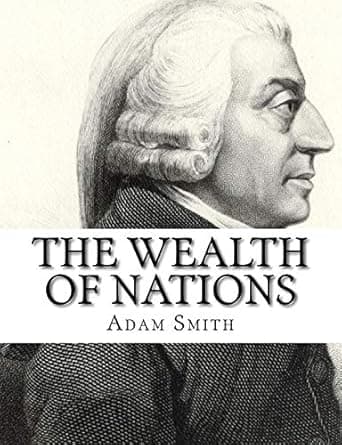
Book Stats
345
Upvotes
89
Downvotes
+256
Net Score
The Wealth of Nations
by Adam Smith
Description
Smith's foundational work of economic theory that introduced concepts like the "invisible hand" and division of labor, essential for understanding capitalism and free markets.
Adam Smith's masterwork laid the intellectual foundation for modern capitalism by analyzing how free markets coordinate economic activity without central planning. Through careful observation of 18th-century commerce and manufacturing, Smith revealed the principles that govern wealth creation and distribution.
Smith's famous concept of the "invisible hand" shows how individual pursuit of self-interest can lead to socially beneficial outcomes. When people make economic decisions based on their own needs and desires, they unintentionally promote the general welfare by creating products and services that others value.
The book's analysis of the division of labor demonstrates how specialization increases productivity and wealth. Smith's example of pin manufacturing—where dividing the process into separate tasks dramatically increases output—illustrates how cooperation and specialization create prosperity.
Smith's treatment of wages, profits, and rent provides a framework for understanding how income is distributed in market economies. His labor theory of value, while later modified by other economists, established important principles about the relationship between work and economic value.
The work's discussion of international trade challenges mercantilist assumptions about wealth and competition. Smith argues that trade benefits all participants rather than creating winners and losers, laying the groundwork for modern free trade theory.
Perhaps most importantly, Smith addresses the moral dimensions of economic behavior, showing how market systems can channel self-interest toward socially beneficial ends. His earlier work, The Theory of Moral Sentiments, provides the ethical framework that underlies his economic analysis.
The Wealth of Nations remains essential reading for understanding how market economies work and why they have proven so effective at creating prosperity. While acknowledging the limitations and potential abuses of free markets, Smith's insights continue to inform economic policy and theory more than two centuries after the book's publication.